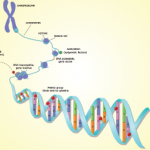Although she and her colleagues are still trying to understand what their research means for clinical practice, Dr. Lanata believes rheumatologists caring for patients with SLE could consider addressing with patients exposure to environmental chemicals as a means to protect patients already suffering from lupus and its associated symptoms.
She also believes greater awareness should be raised in all medical settings about the presence of phthalates in medical plastics.
“Phthalates are ubiquitous—present in most foods, plastics and also in the healthcare setting. Some medications are even coated in phthalates; so we may be giving phthalates to our patients,” she acknowledges. “Perhaps it would be better not to expose our patients to these chemicals when they are prone to [causing] autoimmune dysregulation.”
As part of her long-term research goals, Dr. Lanata wants to identify significant replicated signatures associated with EOCs and DNA methylation dysregulation to interrogate what people have been exposed to and support preventive care around EOC exposure. “The more we study, the more we understand how these chemicals can [affect] our health. In years to come, this knowledge may lead to eliminating these chemicals from our daily lives,” she says.
Dr. Lanata expects to publish initial findings from this study later this year. She also directs rheumatologists interested in helping their patients avoid phthalates to patient information and current research from her colleagues with UC San Francisco’s Program on Reproductive Health and the Environment.
Carina Stanton is a freelance science writer based in Denver.
References
- Jeffries M, Dozmorov M, Tang Y, et al. Genome-wide DNA methylation patterns in CD4+ T cells from patients with systemic lupus erythematosus. Epigenetics. 2011 May;6(5):593–601.
- Squance ML, Guest M, Reeves G, et al. Exploring lifetime occupational exposure and SLE flare: a patient-focussed pilot study. Lupus Sci Med. 2014 May 16;1(e000023).
- Moreno M. Phthalate exposure and health risks. JAMA Pediatr. 2014 Jan;168(1):96.
- Potera C. Autoimmune disease: Phthalate linked to lupus in mice. Environ Health Perspect. 2005 Dec;113(12):A809.
- Stroustrup A, Bragg JB, Andra SS, et al. Neonatal intensive care unit phthalate exposure and preterm infant neurobehavioral performance. PLoS ONE. 2018 Mar 5:13(3):e0193835.


